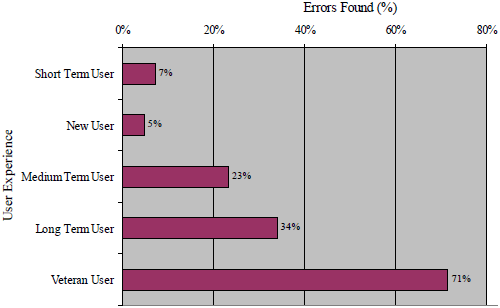Authors
Michael Purser & David Chadwick
Abstract
The research presented in this paper establishes a valid, and simplified, revision of previous spreadsheet error classifications. This investigation is concerned with the results of a web survey and two web-based gender and domain-knowledge free spreadsheet error identification exercises.
The participants of the survey and exercises were a test group of professionals (all of whom regularly use spreadsheets) and a control group of students from the University of Greenwich (UK).
The findings show that over 85% of users are also the spreadsheet's developer, supporting the revised spreadsheet error classification. The findings also show that spreadsheet error identification ability is directly affected both by spreadsheet experience and by error-type awareness.
In particular, that spreadsheet error-type awareness significantly improves the user's ability to identify, the more surreptitious, qualitative error.
Sample

Error identification ability improves with experience.
Though the user categories are not linear in relation to time increments, it could be suggested that after 4 to 5 years experience with spreadsheets the error identification ability significantly increases year on year.
Publication
2006, EuSpRIG
